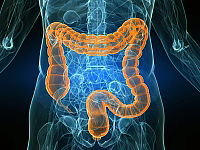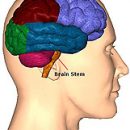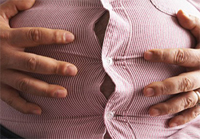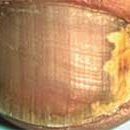Dysbacteriosis or intestinal dysbiosis - symptoms, diagnosis and treatment. Functions of normal microflora in the human body.
Content
- What is dysbacteriosis
- Intestinal dysbiosis — Symptoms and related diseases
- Causes of dysbacteriosis
- Dysbacteriosis in children
- Diagnosis of dysbacteriosis
- Dysbacteriosis — Treatment in children and adults
In the human body, in the intestine, dozens of microbes modes live on the skin and mucous membranes and multiplies — Bacteria, viruses and fungi. Independent neighbors perform important functions whose value science understands only now. Normal microflora is part of the foundation supporting the basis of human health.
What is dysbacteriosis
 Experiments with laboratory animals grown in sterile conditions, proved the importance of microorganisms living in the body. These rats, rabbits, mice completely absent immunity. Contact with any, the most harmless infection leads to death.
Experiments with laboratory animals grown in sterile conditions, proved the importance of microorganisms living in the body. These rats, rabbits, mice completely absent immunity. Contact with any, the most harmless infection leads to death.
From the moment of birth, the human body is populated with useful types of microbes. They stimulate the immune system, counteract the pathogenic flora, are involved in digestion, vitamins and biologically active substances are synthesized. Most of them are in the intestine.
Intestine dysbiosis or dysbiosis — Pathological condition related to violation of the normal qualitative and quantitative composition of intestinal microflora. Given the importance of normoflores for the body, dysbacteriosis cannot but lead to negative phenomena.
Intestinal dysbiosis — Symptoms and related diseases
Dysbacteriosis is not a disease in the traditional sense. There are symptoms that suggest disturbing the composition of intestinal microflora. For example:
- Dispersal phenomena — meteorism, bloating, digestion disruption, constipation or diarrhea;
- bad appetite, nausea;
- decay of forces, headaches, abdominal pain, loss of body weight;
- Reducing immunity, frequent colds, tendency to food poisoning.
Nevertheless, with any disease of the gastrointestinal tract, the patient presents similar complaints. Dysbacteriosis Fresh satellite chronic gastritis, ulcerative disease, enteritis and enterocolites.
Recent studies view dysbacteriosis as a background for the development of chronic inflammatory diseases of the gastrointestinal tract, chronic fatigue syndrome, obesity, cancer, connective tissue diseases.
Causes of dysbacteriosis
Main reasons:
- frequent and unreasonable use of antibiotics;
- frequent use of alcohol;
- improper nutrition;
- Diseases of the gastrointestinal tract.
Dysbacteriosis in children
Children, especially often ill, are subject to dysbacteriosis to a greater extent. The regular purpose of antibiotics destroys the normal microflora, reduces immunity. As a result, the risk of infections that require the use of antibiotics increases. There is a vicious circle.
Diagnosis of dysbacteriosis
Diagnostic methods:
- bacteriological analysis of feces;
- microscopic feces analysis;
- respiratory tests for the presence of microbial metabolites in the exhaled air;
- Polymerase chain reaction.
Passing the analysis on dysbacteriosis must be remembered that the recent reception of antibiotics distorts the results. A few days before the analysis, it is necessary to refrain from the use of alcohol, antiseptic and antacid drugs. Cal on dysbacteriosis is surrendered in the morning. Samples are delivered to the laboratory in warmth, as soon as possible.
Due to the disorders of metabolism and suction of beneficial substances in dysbacteriosis, anemia is often diagnosed. There are a large number of non-digested fats and fiber.
The gold standard of diagnostics is the material fence for the study directly from the intestine. However, this technique is not suitable for most of the patients. Alternative non-invasive study — Respiratory tests for the presence of inhaled metabolites formed during the vital activity of pathogenic flora (hydrogen, methane, etc. hydrocarbons).
Dysbacteriosis — Treatment in children and adults
 Treatment of dysbacteriosis starts from the use of probiotics — preparations containing strains and productivity products of useful bacteria («Linex», «Hilak Forte», «Bifidobacterin», «Lactobacterin»). They contribute to the restoration of the normal balance in the intestine.
Treatment of dysbacteriosis starts from the use of probiotics — preparations containing strains and productivity products of useful bacteria («Linex», «Hilak Forte», «Bifidobacterin», «Lactobacterin»). They contribute to the restoration of the normal balance in the intestine.
In severe cases, antibiotics are prescribed, in accordance with the results of bacteriological research of Cala. After the liquidation of pathogenic flora prescribed probiotics.
If there are problems with digestion, enzyme preparations are prescribed, improving digestion and suction of proteins, fats, carbohydrates, vitamins and trace elements. During constipation, laxatives are prescribed («Duhalak», «Lactulose»). If there are a significant amount of fungi, the course of antifungal therapy is carried out.
Treatment of dysbacteriosis in newborns and infants is carried out under the control of the doctor.









